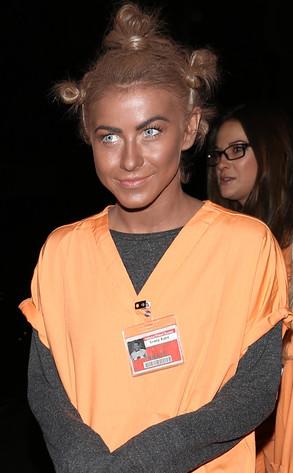It is always important to make sure that white folks are not taking up space in a racial justice movement whose very problem is derived from our privilege and racism: it is important to stand in solidarity and support. This is particularly true of white feminists, whose own fights for justice are steeped in a history of segregation and intersectionality. But where is that solidarity with communities of color who perpetually suffer from injustice? Where were white women during one of the more recently publicized incidences of racism: the preponderance of blackface on Halloween?
Halloween conjures up a plethora of imagery: children walking down the street costumed and candied, ghouls and goblins running amuck in haunted houses…and blackface. I have come to dread going out on Halloween not just because of the slut-shaming that I know will inevitably occur, but also because this sugar coated holiday has unfortunately become a night where people seem to think they have a “pass” for their racism, their fetishization of people of color, their cultural appropriation, and a capitalization on their overall privilege. They seem to believe that the mockery and commodification of other groups and cultures is acceptable on this night and it is high time that white people start holistically holding themselves and others more accountable.
As feminists, our own realities reveal that oppression is real and a part of everyday life, but these experiences are only magnified when we do nothing about the systemic reasons that oppressions continue. We are all tied together; equal pay is related to gun violence, just as cyclical poverty is tied to birth control access, and blackface minstrelsy to police brutality. The same socialized definition of masculinity that led a man to profile, criminalize, and stalk Trayvon Martin threatens our very survival, yet I still don’t see these links being analyzed, let alone discussed enough.
Rather than educate ourselves and speak out against these incidents of both conscious and subconscious racism, too many of us are engaging in the game of oppression hierarchy. The conversation about what form of blackface minstrelsy or cultural appropriation is “worse” than another — such as blackface Halloween costumes donned by Julianne Hough as opposed to those of the now infamous Trayvon Martin trio — only further propagates the core of this issue. Categorizing racism establishes a dynamic where there are “less problematic” instances of oppression leaving perpetrators with less pressure to take responsibility for their actions. Just because one person doesn’t react as strongly to one instance of blackface, doesn’t mean another won’t. It is important to remember that intent does not equal impact: asserting that something is “just a mistake,” or “a bad choice,” without any measure of accountability perpetuates the socialized acceptance we have of racism and culturally insensitive actions. It’s a method white people use to justify their own internalized racism and discomfort with issues of privilege and we need to stop allowing it to continue and hold people accountable for these actions.
Similar to the sexism and patriarchy that perverts society, the criminalization of people of color, namely racism, is a contributing factor to the interconnected oppression we all experience. Trayvon Martin’s death and the genocide of young men of color at the hands of our “justice” system are tied to us, to our privilege, to our struggles, to our communities. It is no longer, and never has been, enough to simply say these words, or include a diversity value in our mission statements. Start living your words. Your solidarity requires action.


